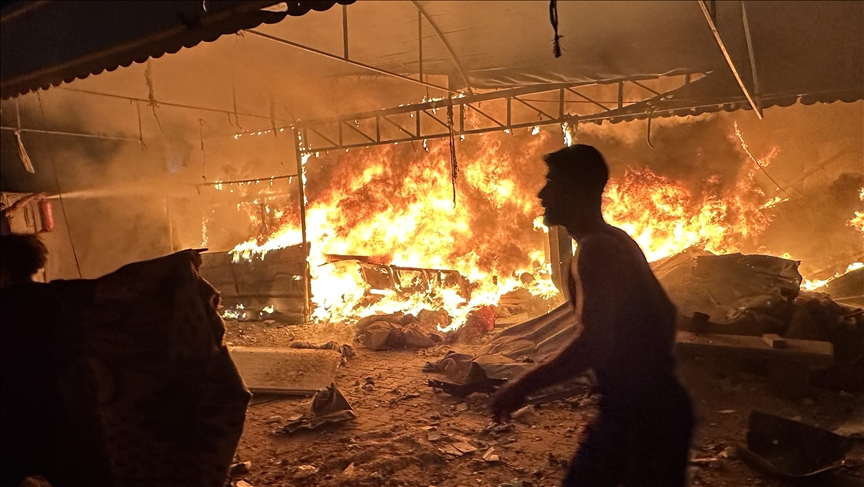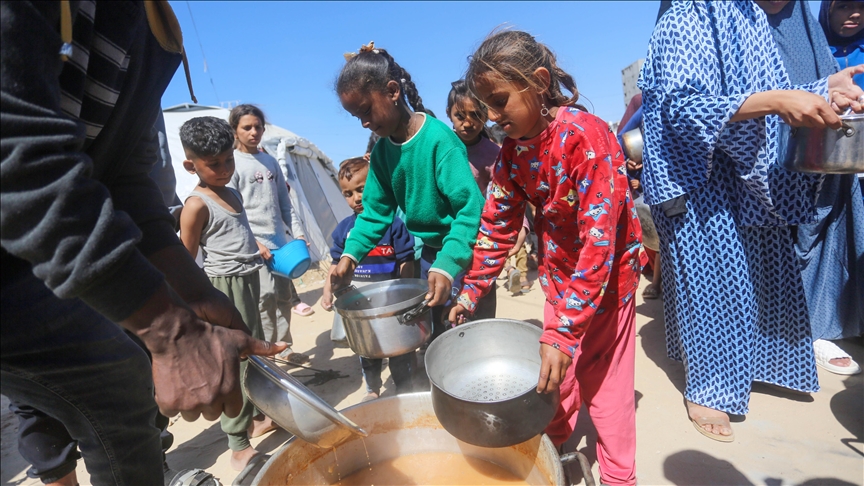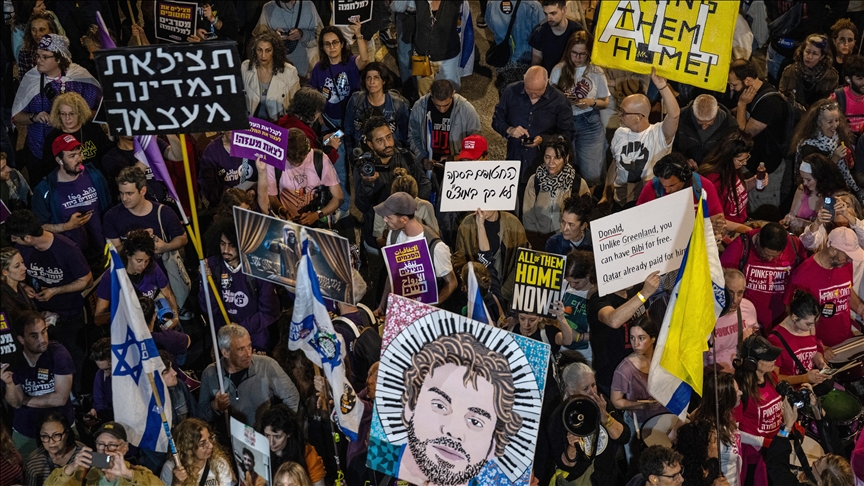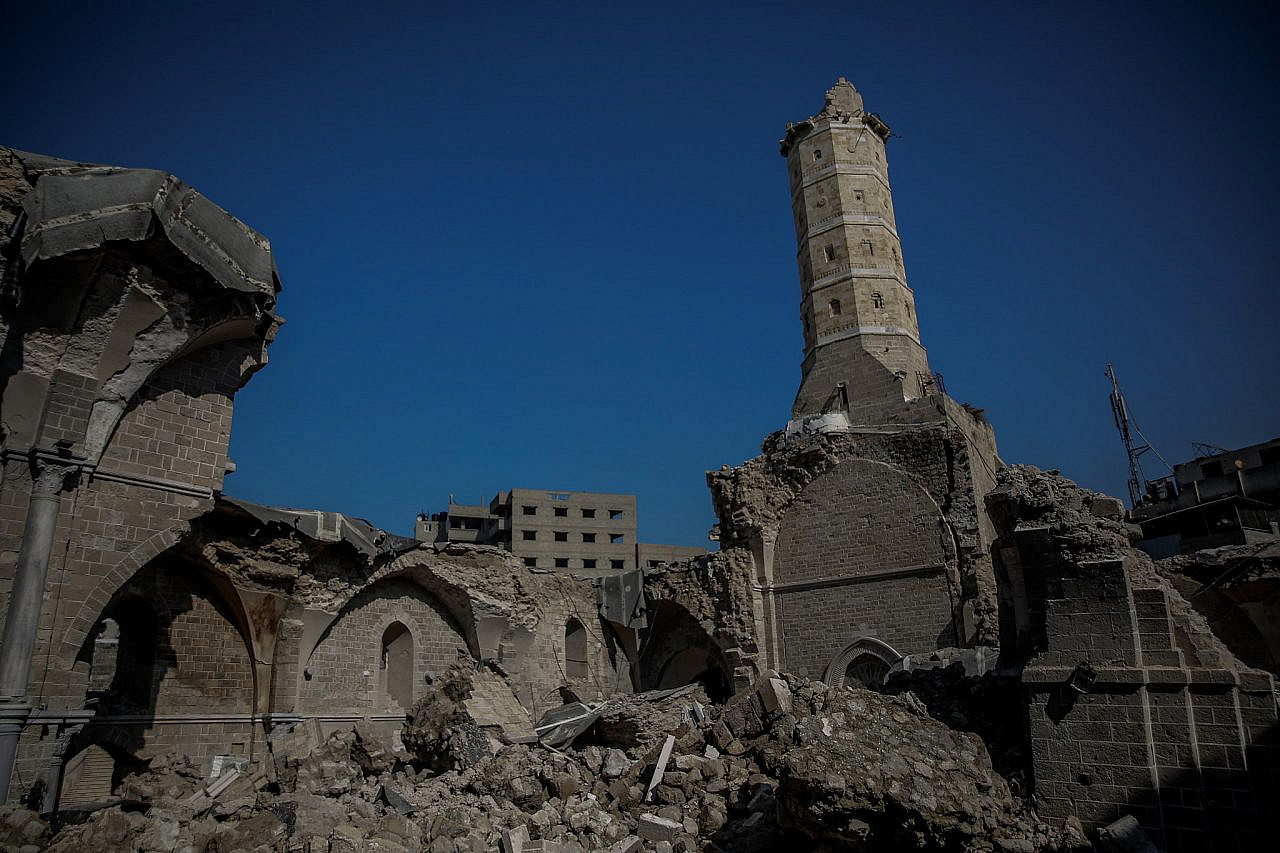Bombing a Hospital!
The Israeli forces’ deliberate destruction of Gaza City’s Al-Ahli Arab Hospital reflects a broader intent to systematically dismantle essential aspects of life in the Gaza Strip. This attack is part of a clear strategy to erode all means of survival by disregarding international legal protections for civilians in order to deliberately deprive them of basic living conditions and strike vital infrastructure; it demonstrates a calculated Israeli policy designed to induce a slow collapse and push the people in the Strip towards a total breakdown.
The Euro-Med Monitor emphasises that this escalation marks a dangerous phase in a systematic strategy meant to eliminate Palestinian civilians in the besieged enclave. The targeting of Al-Ahli Arab Hospital is the targeting of Gaza City’s last refuge for the sick and wounded, who should always be protected, and of medical personnel working under catastrophic conditions to save lives. Bombing a hospital sheltering critically ill patients is a direct violation of the right to life and, in a broader context, is part of Israel’s ongoing genocide against the Palestinian people in the Gaza Strip.
Israeli aircraft struck the emergency building of Al-Ahli Arab Hospital in central Gaza City with two bombs at around 2:10 a.m. on Sunday 13 April 2025. The attack occurred less than 30 minutes after the hospital received an Israeli call demanding evacuation. The strike destroyed the building and caused particularly extensive damage to the reception area and emergency department, laboratory, and pharmacy, which all caught fire.
According to eyewitnesses, people sheltering inside the hospital and medical staff were forced to evacuate dozens of patients and wounded people—some in critical condition—from the hospital to the surrounding streets. Patients were left lying on sidewalks, exposed to the risk of death and denied access to medical care, highlighting the severity of the escalating humanitarian crisis. Following the evacuation process, an injured child, Hatem al-Nabih, died outside the hospital.
As international law mandates the protection of medical facilities, the Israeli army’s order to evacuate the entire hospital within less than 30 minutes falls far short of the minimum standards required for a safe and effective evacuation. The order reflects a deliberate failure to provide genuine safeguards for civilians, including patients, the wounded, and medical staff. Given the Israeli pattern of issuing formal warnings to justify actions that still result in egregious harm due to the lack of time allotted for evacuation, Israel is not absolved of its legal responsibility.
Furthermore, the issuing of evacuation orders does not revoke a hospital’s protected status under international law, nor justify targeting and destroying it, especially when the facility plays such a vital role in the survival of civilians, as was the case with Al-Ahli Arab Hospital. An operating hospital remains a site of humanitarian use, and under no circumstances may civilians be deprived of its services, even after evacuation.
Demanding the immediate evacuation of a hospital overcrowded with critically ill patients, many of them on life support, amid a total blockade and absence of safe zones, cannot be seen as a humanitarian measure. Instead, it is an impossible demand—one that turns the so-called warning itself into a tool of coercive pressure aimed at the destruction of the population, both physically and psychologically. With no escape, refuge, or international intervention, this strategy deliberately drives individuals into a further state of absolute despair, as they see themselves being pushed towards a fate in which their people’s existence has been eliminated.
Israel’s claim of Hamas’ “military use” of the hospital is a familiar and well-worn justification that is often invoked to legitimise its systematic killings and destruction after the fact. This claim lacks credibility in the absence of concrete evidence, especially when considered within the broader context of the deliberate Israeli policy of targeting civilian infrastructure—most notably hospitals. Israel’s bombardment of these facilities has been central to its attacks, despite there being no legal basis for this type of targeting, as such buildings are protected under international humanitarian law.
The principle of proportionality prohibits civilian harm that is excessive in relation to the anticipated military advantage. Therefore, the destruction caused by Israel’s bombing of Al-Ahli Arab Hospital and the consequent severe physical and psychological suffering inflicted on patients, medical staff, and displaced civilians who were seeking shelter there outweigh any claimed military benefit. There is no question, then, that the attack flagrantly violates international humanitarian law and constitutes an international crime warranting legal prosecution and accountability.
Euro-Med Monitor stresses that this attack is not the first to target Al-Ahli Arab Hospital since Israel began its genocide against the Palestinians in the Gaza Strip in October 2023. It is also part of a broader, systematic campaign to completely disable all health facilities in the besieged enclave. Following the destruction and shutdown of most other hospitals by Israeli forces over the past 18 months, Al-Ahli Arab Hospital was the last relatively functional hospital, serving over one million people in Gaza City and the northern part of the Strip.
Prior to the attack on Al-Ahli Arab Hospital, media outlets close to the Israeli army published a video on March 21 showing Israel’s bombing and destruction of the Turkish-Palestinian Friendship Hospital in southern Gaza City. As one of the largest specialised hospitals, it served over 12,000 cancer patients. Israel had already targeted this hospital in November 2023 and again in mid-2024, after which Israeli forces turned it into military barracks. This action deprived thousands of patients of vital care, and led to the deaths of approximately 500 cancer patients due to lack of treatment.
Israel’s bombing of both Al-Ahli Arab Hospital and of the Turkish-Palestinian Friendship Hospital—despite the latter being under Israeli control—indicate that these attacks are being carried out without any legitimate military necessity. They reveal that Israel’s true objective is not security, but the deliberate creation of widespread destruction and unliveable conditions in the Gaza Strip, with the ultimate aim of forcing the remaining Palestinian population to leave it.
The ongoing targeting of hospitals and healthcare infrastructure in the Gaza Strip constitutes both a war crime and a crime against humanity. It exposes the systematic nature of the Israeli aggression and its goal of eliminating the civilian population by dismantling their most basic means of survival—most notably the healthcare system, which remains the last lifeline amid the ongoing genocide and total siege imposed on the Strip’s civilians.
Since 2 March 2025, Israel has blocked the entry of medicine and medical supplies along with all other humanitarian aid into the Gaza Strip, which was already facing a severe shortage of such supplies due to the strict blockade prior to the January 2025 ceasefire, shattered by Israel on 18 March. The crisis has been compounded by the escalating Israeli airstrikes and the rising number of casualties they continue to cause.
All states must fulfil their individual and collective legal obligations and take urgent action through all available means to stop Israel’s ongoing genocide in the Gaza Strip. They must employ effective measures to protect Palestinian civilians, including by safeguarding medical facilities, health workers, the wounded, and the sick, to halt the continuation of Israel’s policy of mass extermination in the Strip.
Euro-Med Monitor calls on the international community to ensure Israel’s compliance with international law and the rulings of the International Court of Justice, and to hold it accountable for its horrific crimes against the Palestinian people. The international community must also enforce the arrest warrants issued by the International Criminal Court against the Israeli Prime Minister and Defence Minister without delay.
In addition, the international community must impose economic, diplomatic, and military sanctions on Israel for its systematic and grave violations of international law. These should include an arms embargo; a halt to all political, financial, and military support or cooperation; a freeze on the assets of officials implicated in crimes against Palestinians; and travel bans against these officials. Additionally, trade privileges and bilateral agreements that grant Israel economic advantages that enable its continued violations should be suspended.
All relevant states and entities must hold accountable those complicit in Israel’s crimes—most notably the United States and other Israeli allies that assist in enabling Israeli violations in the Occupied Palestinian Territory. This includes aid and other forms of cooperation in the military, intelligence, political, legal, financial, and/or media sectors, as well as any other sectors that contribute to the continuation of the aforementioned crimes.








